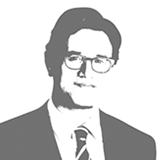Governance and Leadership
The inexorable forces of technology, uncertainty, and, of course, COVID-19 are currently driving a large-scale change in values, habits, and collective behavior, a shift requiring new models for economic, political, and social leadership.
This is the core theme of this edition of UNO 35. We hear from a very interesting series of contributors who discuss the topic from several different points of view and parts of the world.
All those contributors share one thought in common: All of them believe this current crisis is ultimately a transformative force, accelerating changes that were already in motion. This idea is especially relevant for the digital and technological sectors, which now more than ever require far more solid, but also flexible and resilient, economic structures. We need new channels and collaborative spaces for public and private sector contact, as well as a host of state-focused structural reforms committed to long-term anticipation.
New forms of governance will be necessary as leadership values, gestures, and styles continue to evolve. In partnership with Trivu, LLYC perfectly described the road before us via its recent Future Leaders project, one of the first reports comparing current leaders and leadership styles to those of the younger generation, which will lead the world in less than two decades.
The history of leadership has always been a pendulum, and in short, we are seeing the pendulum swing in real time
Utilizing linguistic processing and artificial intelligence, we discovered that today’s leaders operate better in the world of ideas, remaining wary of new innovations. They are pragmatic but require order and structure in their surroundings. On the other hand, new generations are responsible, idealistic, and less hierarchical. They have a more acute sense of duty, a higher degree of curiosity, and more open minds. Naturally, they carry technology in their DNA. They are assertive but, unlike older generations, tend to be more participatory, prioritizing respect and the wellbeing of others. They are mindful of the impact their actions have on the outside world, and are well-aware of the necessity of collective action.
Getting to the core of the issue, the central difference between these two groups regards the matter of emotional management. Traditional leaders tend to hide their emotions, whereas upcoming leaders consider emotion to be integral to their roles.
That emotional propensity makes new generations better positioned for interpersonal interaction. When expressing themselves, future leaders use words such as “help,” “feel,” and “share” more often. They also talk about “loving,” “losing,” and “achieving,” about “learning,” “understanding,” and “listening.” They tend to avoid the kinds of dominant verbs, such as “win,” “allow,” “pay,” “mean,” and “seem,” that current leaders use liberally. Words such as “life,” “people,” “friend,” and “team” are also much more common in the vocabulary of future leaders.
It appears the pandemic has accelerated society’s shift toward more emotional, participatory, and efficient management models. Under this new paradigm, ‘doing’ will become much more important than ‘saying’
The history of leadership has always been a pendulum, and in short, we are seeing the pendulum swing in real time. The most important takeaways from LLYC’s study are that this swing will be faster than expected in the countries represented and that this shift is a powerful global trend. Emerging from this crisis, society will demand more courage and less authoritativeness from its leaders. Perhaps leaders in that society may appear more vulnerable, but they will doubtless also be more empathetic, approachable, passionate, gracious, and committed.
Amid a whirlwind of uncertainty, it appears the pandemic has accelerated society’s shift toward more emotional, participatory, and efficient management models. Under this new paradigm, “doing” will become much more important than “saying.” In this edition of UNO, you will find the opinion of one of these future leaders, a member of a younger generation that is already transforming various sectors through its passion. You will also find an interview with CEOE Chairman Antonio Garamendi, who describes the challenges faced by today’s business leaders.
This current moment is full of difficulties, but it holds opportunities in equal numbers. As Ramon Jauregui expresses in this edition, society needs solid, exemplary, responsible, and sustainable leaders now more than ever. Whoever adapts fastest to that new reality, whoever correctly interprets the changing tides, will go into the future with a significant advantage in securing their success.
